#fundamentalist ideology
Explore tagged Tumblr posts
Text
'Scary' Islam Is Recruiting Woke 'Useful Idiots' - Yasmine Mohammed (4K...
youtube
Yasmine Mohammed is an ex-Muslim who speaks out against the extreme religion, and how woke useful idiots are being used against us. She was forced to marry an al-Qaeda terrorist, but has since escaped and now speaks out with incredible bravery. #heretics #islamist #usefulidiots
Follow her on X: / yasmohammedxx
Subscribe to her channel: @YasmineMohammedxx
More info:
Through her initiative Free Hearts, Free Minds, she supports closeted ex-Muslims from Muslim-majority countries and co-ordinates an online campaign called #NoHijabDay against World Hijab Day. She also has a website and hosts an online series on YouTube called Forgotten Feminists.
Mohammed has been interviewed by Sam Harris, Seth Andrews, and several news outlets from multiple countries, and in 2019 self-published the book Unveiled: How Western Liberals Empower Radical Islam.
Chapters:
0:00 Highlights
1:30 % of Scary Muslims
5:30 Why Worse Than Other Religions
8:30 Is There Something About the Text?
11:30 Is Islamophobia Racist?
14:05 Can you be an atheist Muslim?
16:30 Yasmine’s Past - What Was I Thinking?
19:10 What Did Allah Look Like in Your Mind?
21:30 Yasmine’s Bravery (Insane!)
23:30 Salman Rushdie Said This
25:20 Yasmine’s Incredible Story
31:30 Marrying an al-Qaeda terrorist
35:30 Covering Herself in Black
38:30 The Beatings She Took
43:30 The Ideology Ruins Love
46:00 Where Islamist Palestine Turned
49:30 Palestine Like ISIS? Using Western Students
52:30 Strippers for Gaza / Useful Idiots
55:30 The Plot to Take Over The West
58:30 Katharine Birbalsingh & Michaela School
1:00:30 Maajid Nawaz
1:04:10 A Heretic Yasmine Admires
#radical islam#woke culture#the lie of Islamophobia#critical thinking#terrorism#the 100 year plan#which sounds a LIT like the Third Reich#“you are looking for the Nazis in all the wrong places” WE TOLD YOU SO FOR YEARS NOW#the muslim brotherhood#jihad#JihaNazism#fundamentalist ideology#Yasmine Mohammed#interview#Youtube
11 notes
·
View notes
Text

Source: Pratiyogita Darpan, October 2024
voice is intimate? or are opinions too loud? too deafening?
#Taliban#Misogyny#Gender Inequality#Women's Rights#Human Rights Violations#Islamic Fundamentalism#Gender-Based Violence#Religious Extremism#Oppression of Women#Patriarchy#Religious Conservatism#Cultural Oppression#Gender Roles#Traditionalism#Fundamentalist Ideology#Cultural Norms#Honor Culture#Segregation of Genders#Religious Interpretation#Female Education Ban#Women in Public Spaces#Hijab Enforcement#Restrictions on Movement#Dress Code Enforcement#Child Marriage#Forced Marriages#Taliban Decrees#Legal Discrimination#Suppression of Protests#Gender Apartheid
2 notes
·
View notes
Text
the misbegotten are sooo underrated its insane
#elden ring#i’m one of maybe two people i’ve seen who have a misbegotten oc#so much art i’ve managed to find of ‘em on like. sites (havent actually checked tumblr lol) is like. just treating them like monsters OR jus#just drawing them completely off model as Generic Muscular Furries#(i haven’t posted anything of my oc here since i’m still putting her together and am shy and stuff.#she was adopted by nobility as a baby and trained in Fundamentalism. eventually ‘banished’ / ‘evacuated’ to the lands between when her#adopter’s social stability was threatened. eventually -like six or seven ‘story arcs’ in - ends up joining forces with a#finger maiden who went rogue over the whole kindling idea and ended up joining the bloody fingers of all fuckin groups.#varre let her join as a laugh. she nearly died getting the blood for the fuckin induction ritual lol)#(i just find the idea of an insecure as shit finger maiden who ends up straying from the wierd groomed selflessness path and ends up joining#a strange blood-fertility cult whose primary activities include murdering finger maidens to be neat. she eventually breaks off from them too#though. still holds a spiritual loyalty to them but not an ideological or practical one djtjhktkjgg.)#she & the as of yet unnamed misbegotten fundamentalist -who ends up going more towards Miriel-esque omnism bc i’m bias- do get gay)#oh also i think misbegotten lay eggs probably. it just makes sense. idk maybe they don’t or it like varies between them#maybe its a kangaroo situation where they do give live birth but its extreeeemely premature#do they have enough room for pouches? hm
13 notes
·
View notes
Text
This has always been the problem with the Howard Zinn school of history. Zinn’s history of the US resembles a biography written by a bitter former spouse. In lieu of a nuanced and accurate historical account it offers a deliberate slander of our own culture. The result is at once self-indulgent and self-pitying. A balanced account must not flinch from examining our historical mistakes and misdeeds and those of others, but the modern approach to history has too often become a neurotic wallowing in half-truths of our own failures. The corresponding utopian fantasies of other cultures more closely resemble the morality play of a Tolkien novel than the more complex experiences of people who actually lived on Earth.
As UK-based IEA economist Kristian Niemietz recently observed in a short Twitter thread about “anti-Britishness,” signalling disgust at our own culture and history has little to do with truth or helping marginalized communities. Rather, it is a way to advertise the superficial cleverness of radical self-criticism. By castigating the United States on social media or with our K12 or university students, we can flatter our moral egos without needing to donate money or time to communities in need. It fosters division and the main beneficiaries are not Native Americans or other marginalized groups, but whoever is collecting likes and followers online.
We can do better than this. US history should be clear and accurate about the US’s misdeeds, but we should also acknowledge that the US overcame its faults to become a beacon for progress. In the same way, we should highlight the wonderful culture, arts, religion, and so on of American Indians without turning them into pious exemplars of pastoral innocence and moral instruction. Our “ethnic studies” curricula too often lapse into propaganda designed to indict and shame the West and all its works. People and cultures are complex. If students were permitted to understand that human failings are universal but can be overcome, it might help to alleviate the depression and anxiety of those unjustly burdened by the sins of their ancestors.
__________
Christopher J. Ferguson
excerpt from his book review of ‘Indigenous Continent’ by Pekka Hämäläinen @quilette
https://quillette.com/2023/04/27/uncomfortable-history/
#history#analysis of facts vs narratives#quilette#oikophobia#white guilt#bullshit#education#intellectual honesty and proportionality vs sentimentality or pseduo guilt that helps fuckall#examine your assumptions#intellectual honesty vs fundamentalist ideological loyalty#localize your virtue to help people in need where you are vs ideological conformity
24 notes
·
View notes
Text
This
people with siblings: how do you feel about them?
#Youngest of 7 kids#I have two brothers and four sisters. In order of B- S- B- S- S- S- and then Me#before I say anything- I need to preface that I grew up in a fundamentalist Christian homeschool family…so there’s lots of complex feelings#Eldest brother is kind and loving- sweet guy- he’s also the president of his church and a right-wing guy…so lots of good memories with bad#Eldest sister is sweet- professional musician- taught me my love of music and cooking- also still in her church and right wing but kind#Second brother is the one I have the roughest relationship with- but that’s been improving a lot. He didn’t know how to deal with young#kids- so said a lot of really really hurtful things that effected me a long time#but since he moved out and we are both adults now#it’s ok#Second sister I have the most complex relationship with now#countless amazing memories with her#sweet and funny- used to hang out with me a lot and helped me though some of my darkest times#but after getting married she’s fallen into the alt-right and Christian nationalism#so it’s sometimes hard to chat with her now#but it’s been improving since all my siblings and I made it abundantly clear that if she talked to us about her asshole ideology-#she wouldn’t have siblings to talk to#so she’s mellowed out around us now#third sister is really really close with me#she was the first one I came out to- and the first I told I was dating my partner#kind- loving- has some mental health issues that flair up from time to time that can be hard to handle as a sibling- but we work through it#fourth sister I am by far the closest with#hated each other as kids#but learned to love and flow with each other as we grew up#now we are really really close#she’s also the only other (out) queer person in my family#so that helped out relationship MASSIVELY#I say all this with the info that I would take a bullet without hesitation for all of my siblings#I love them all dearly#growing up homeschooled in the same house FORCED us to become close and learn how to live with each other#So yeah
30K notes
·
View notes
Text
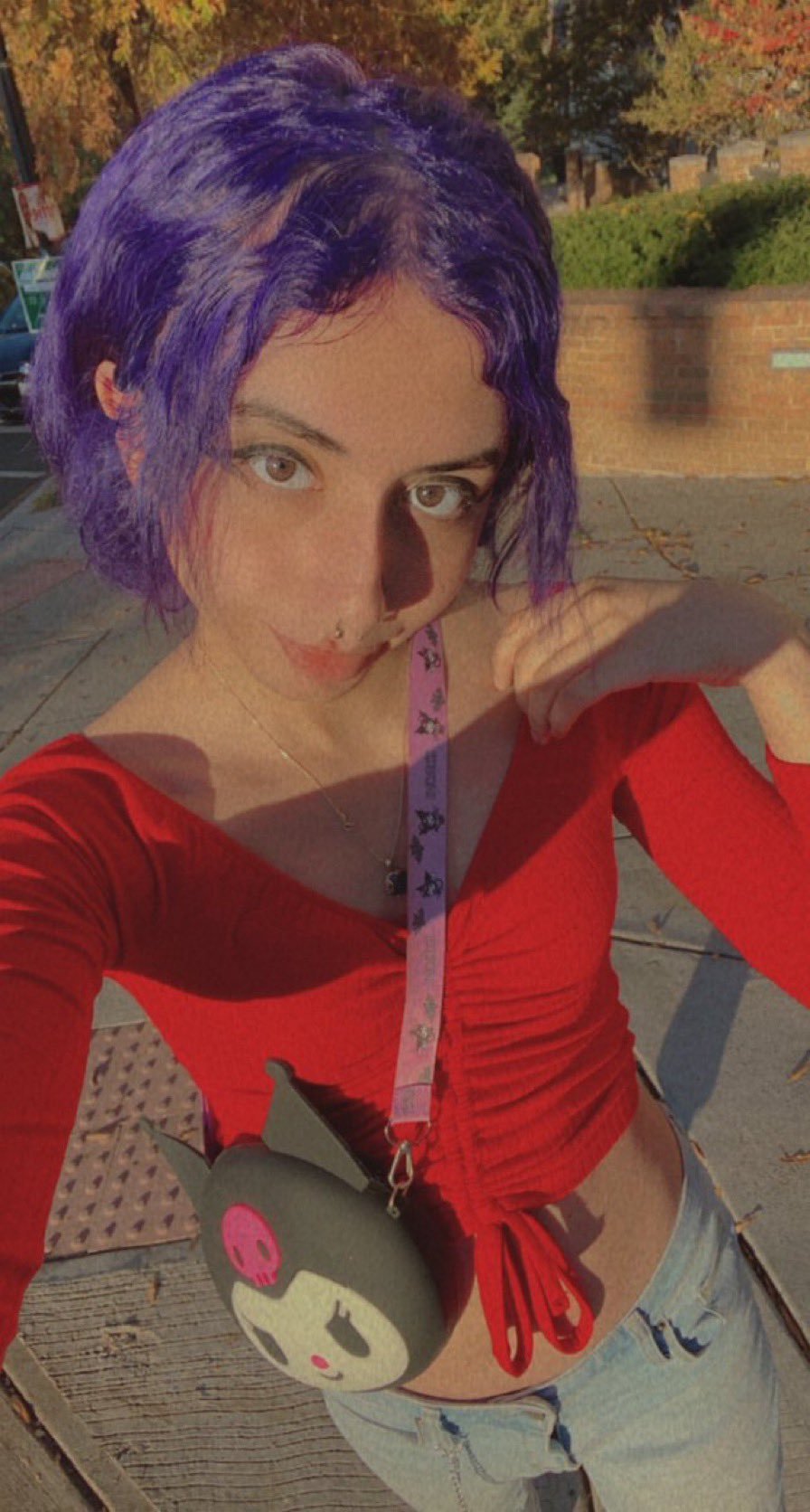



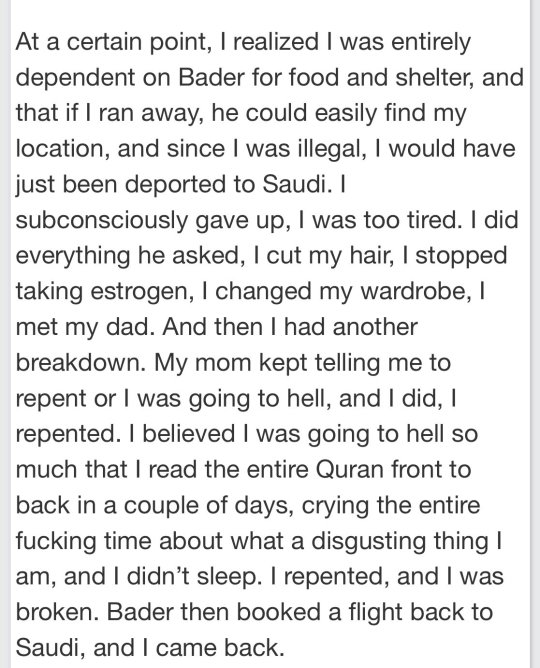
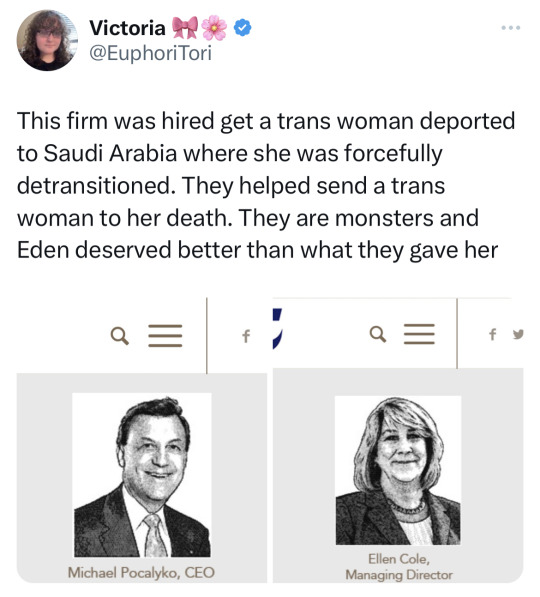
CW: trans death
I don’t usually post about losing our trans siblings but Eden Knight, a popular Twitter user, is being ignored by media. Her story seriously deserves more coverage. Eden was a young Saudi trans woman living in the U.S. until yesterday. Her family hired a popular Heritage Foundation-backed “fixer,” Michael Pocalyko, who arranged for her to undergo forced detransitioning. His associates trapped her in D.C. through financial coercion and threatened her with her undocumented status. She couldn’t take it anymore after a month of this treatment. She left a heartbreaking note that has been shared on Twitter thousands of times. The popular phrase “death before detransition” isn’t an exaggeration.
Not only was Eden influential in her own right but her story shows how the broader landscape of anti-trans fundamentalist organizing reaches across borders, religions, and ideologies. If you’re in media, please consider writing about her story. Her family has now confirmed all of it. Her family just confirmed everything. Unlike many posthumous trans narratives, she left us with information about exactly who/what killed her and how it happened. I’ve been in touch with her partner, who is as shocked about this information as we are. This dehumanizing treatment needs to end immediately. We are using #JusticeForEden and #HerNameWasEden for more information.
Update: Eden’s friends have compiled everything about her abduction in one place.
11K notes
·
View notes
Text
I know some dickheads have now decided that Judaism is the "bad, violent, terrorist religion" and Islam is the "good, peaceful" one, which is only to be expected of white people, but how much of an issue is it currently? Like I've seen some USAmericans sharing how the Islamic faith shapes Gazans values and perseverance (good) except with that distinct white hippie "I'm about to imprint on this like the world's most racist duck" vibe (bad), but I didn't think they're already turning on Judaism in numbers.
Do they realize that Christianity is also the same kind of comfort to Christian minorities in Asia and Africa? That it was Buddhists that genocided the Rohingyas in Myanmar and Tamils in Sri Lanka? That Hindu fundamentalists are even now trying to ethnically cleanse Muslims in India? How Hindus and Christians are terrorized and persecuted in Pakistan? That Muslims have a history of persecuting and ethnically cleansing Jews too?
Really tired of asking y'all to be normal about people's religions man. There's no religion that's inherently violent or exceptionally peaceful. It's just like any other ideology that becomes a weapon in the hands of ethnic power. Interrogate power, not religion, and respect people's belief systems insofar as they aren't in your business.
Edit: I've amended the "long history" of Muslim persecution of Jews because it might be misleading in the current political climate. Zionism and antisemitic Arab nationalism are twin births resulting directly from Christian colonization, and Islamic empires tended to actually be more tolerant of other religions compared to Christianity, especially Judaism, which was considered a sibling religion. Antisemitism wasn't ideologically entrenched in Islamic tradition. It's simply that ethno-religious power will lead to ethno religious domination and intermittent cleansing of minorities, and Islam is no exception. Humans be humaning always.
#Edit: please boost the edit#why can't white people just be fuckin normal for once#tbh this site was so weird about Judaism that it felt almost culty#I had several crises about whether I was being antisemitic before I realized no I'm just reacting to the idealization-demonization binary#that seems to be all western leftists know how to do#white queers are the worst about this#and now some of the asks I've been getting gives me the impression that the west thinks ''Islamist'' is some kind of dangerous cryptid#y'all attach insane levels of importance to people's choice of headgear#the only common denominator of all the Muslims I know is their fixation on biriyani idk#a lot of white lefties just want to use religion to distance yourself from your white privilege#same reason as why communism is so attractive to you#y'all want to share in a legacy of oppression because it's easier than self-reflection and unlearning#antisemitism#anti Zionism#Islamphobia#philosemitism#white queers#western leftists#racism#religious fundamentalism#genocide#religious violence#knee of huss
2K notes
·
View notes
Text
Most Christian Zionists are Evangelical & Fundamentalist Christians; however, the ideology has adherents within all Christian denominations [including Mormonism].
They exist globally; this is not solely an American phenomenon.
The largest Zionist organization in America is a Christian organization.
The largest Zionist organization has more Christian members than there are Jewish Americans alive.
As of 2021, there are roughly 7.5 million American Jews. Christians United for Israel alone has over 10 million Christian members.
There more than 30 million Christian Zionists in the United States alone. That’s double the population of Jews worldwide.
Antisemitism is the lifeblood of the Christian Zionist. Substituting care for Jews with nationalism [based in belief in the coming Rapture], Christian Zionists wield antisemitism as a tool.T
They use antisemitism in the Diaspora to entice Jews to move under the guise of ‘safety’, propelling & furthering their agenda of gathering all Jews in the Holy Land.
Christian Zionists are happy to promote antisemitic propaganda, misinformation, & legislation in order to achieve this goal.
Citation
1K notes
·
View notes
Text

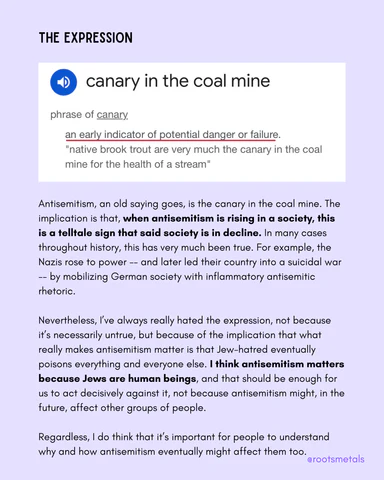
Antisemitism, an old saying goes, is the canary in the coal mine. The implication is that, when antisemitism is rising in a society, this is a telltale sign that said society is in decline. In many cases throughout history, this has very much been true. For example, the Nazis rose to power -- and later led their country into a suicidal war -- by mobilizing German society with inflammatory antisemitic rhetoric.
Nevertheless, I’ve always really hated the expression, not because it’s necessarily untrue, but because of the implication that what really makes antisemitism matter is that Jew-hatred eventually poisons everything and everyone else. I think antisemitism matters because Jews are human beings, and that should be enough for us to act decisively against it, not because antisemitism might, in the future, affect other groups of people.
Regardless, I do think that it’s important for people to understand why and how antisemitism eventually might affect them too.
ANTISEMITISM AS A SIGN OF SOCIETAL DECLINE
Which came first: the chicken or the egg? In other words, do societies decline because of antisemitism, or does antisemitism rise because societies are in decline? In my opinion, it’s a little bit of both.
First, it’s important to understand how antisemitism functions. Antisemitism is not only a bigotry, but a worldview that relies on conspiracies, scapegoating, and projection. When things are bad -- for instance, when a society is in disarray -- people need someone to blame. When a child went missing in the Middle Ages, who was at fault? Why, the Jews, of course. When as much as 30 to 60% of the European population died from the Black Death in the 14th century, who was to blame? The Jews. When Weimar Germany suffered from economic hardships, who else could be at fault but the Jews?
I personally noticed this phenomenon in real-time in 2020, following the murder of George Floyd and the Black Lives Matter protests. Instead of holding American police to account for their police brutality, very quickly, antisemites swept in with the “Deadly Exchange” conspiracy theory, which absurdly posits that it’s the Jewish state that is at fault for police brutality in the United States (as though American police brutality didn’t exist before 1948!). In this sense, it’s obvious that antisemitism rises when societies are in strife.
On the other hand, pre-existing antisemitism will poison everything in a society. White supremacists and Islamic fundamentalist terrorist groups, for example, often recruit followers with antisemitic rhetoric, but their violence targets more than just Jews. It doesn’t take long for hostile antisemitic environments to become hostile to many other groups of people.

"FIRST THEY CAME FOR THE..."
Surely you’ve heard the famous Martin Niemöller poem: “First they came for the socialists, and I did not speak out — because I was not a socialist. Then they came for the trade unionists, and I did not speak out — because I was not a trade unionist. Then they came for the Jews, and I did not speak out — because I was not a Jew. Then they came for me — and there was no one left to speak for me.”
It is, perhaps, the quotation most often associated with the Holocaust and the Nazi persecution of Jews and political dissidents. And while Pastor Niemöller certainly had a point, the question bears repeating: why must others be targeted alongside Jews for antisemitism to matter? Shouldn’t antisemitism matter simply because Jews are human beings deserving of fundamental human rights and dignity?
As it turns out, Niemöller never quite got the memo. In the early 1930s, he not only openly agreed with Nazi ideology, but he voted the Nazis into power. His change of heart came not because he atoned for his antisemitism, but because he disliked how the Nazi Party was meddling with the Lutheran Church, which led to his eventual arrest. Even worse: after the Allied victory, he opposed the de-Nazification of Germany because he thought that it would “do more harm than good.”
In the end, it seems, for Niemöller, antisemitism only mattered when it affected him personally.
"FIRST THE SATURDAY PEOPLE, THEN THE SUNDAY PEOPLE"
The proverb “min sallaf es-sabt lāqā el-ḥadd qiddāmūh” — “after Saturday comes Sunday”— is used in many Middle Eastern countries, including Egypt, Syria, and Lebanon, to describe the treatment of Middle Eastern Jews and Christians. A popular variation is “first the Saturday people [Jews, who observe Shabbat on Saturday], then the Sunday people [Christians, who attend church on Sundays.” The idea is that what has been done to the Jews of the Middle East is now what is being done to Middle Eastern Christians.
The origins of the phrase, with this particular meaning, are contested, but some historians trace it back to the 1936-1939 Arab Revolt in Palestine and claim that it was coined by the followers of the Nazi collaborator Palestinian leader Haj Amin Al-Husseini. The phrase has also been attributed to the pro-Zionist Maronite Christians in Lebanon in the 1930s and 1940s. After the British authorities passed the 1939 White Paper, which virtually banned all Jewish immigration to and land purchases in Palestine, some Palestinian Arab Christians reportedly worried that they would be marginalized next.
In the 1940s and 1950s, virtually 100% of the Jewish population of the Middle East — which once numbered at around a million — was expelled from their homes in a series of systematic expulsions and massacres.
Unfortunately, much as the proverb predicts, Middle Eastern Christians have suffered a similar fate. In 1900, Christians made up about 13% of the population of the Middle East. Today, Christians form only 4% of the Middle Eastern population.
Assyrian, Maronite, Coptic, and other Native Middle Eastern Christians have been driven out of their homes by Islamic fundamentalist violence, a recent example being the massacres and executions perpetrated by ISIS.
JIHADIST GROUPS
Like white supremacist groups, Islamist jihadist groups such as ISIS have historically used antisemitic rhetoric as a “gateway drug” for recruitment. For example, Damon Joseph, also known as Abdullah Ali Yusuf, was indicted by a federal court in late 2018 for providing material support to ISIS. After an investigation, it seems that Joseph had been radicalized within a matter of months, following his conversion to Islam. Joseph, however, had espoused antisemitic beliefs for years, and it seems that his pre-existing antisemitic worldview influenced his fundamentalist interpretation of Islam.
According to former CIA agent John Kiriakou, after the CIA captured Abu Zubaydah, who at the time was believed to be the number three in Al Qaeda, Abu Zubaydah said that he never hated America and only wanted to kill Jews and attack Israel.
Similarly, in his 2002 “Letter to the American People,” in which he “explained” the 9/11 attacks, Al Qaeda founder Osama bin Laden justified his terrorist acts on the basis that the United States is allied with Israel and Jews allegedly “control” the American government.
Since the outbreak of the Israel-Hamas War, Jihadist groups have recruited lone wolf attackers in third countries by inciting against Israel.
Hezbollah, which was formed to fight Israel’s existence, has now taken the lives of Syrians, Lebanese, Iranians, and much more.
Antisemitism is closely linked to Islamist terrorism, even terrorism that doesn’t specifically target Jews, and it should be considered an international security threat.

WHITE SUPREMACY
Antisemitism is foundational to white supremacy, but it is not exclusive to white supremacy. White supremacy does not exist without antisemitism, but white supremacists don’t exclusively target Jews, and non-white supremacist ideologies can be antisemitic, too. In other words, all white supremacists are antisemitic, but not all antisemites are white supremacists, and white supremacists are bigoted toward many other groups of people, too.
Antisemitism plays a very specific function within white supremacy. White supremacists rely on antisemitism to (1) scapegoat, and (2) divide and conquer. For example, white supremacists believe that Jews are behind a supposed “white genocide,” aiming to replace white folks with Brown and Black folks. In other words, what starts with Jews doesn’t just end with Jews.
White supremacist groups often recruit online with antisemitic rhetoric, and many violent white supremacists were radicalized by consuming antisemitic content.
In the 1920s, the resurgence of the Ku Klux Klan is tied directly to the 1913 lynching of Leo Frank, a Jewish American. The KKK then went on to terrorize Black Americans.
DOMESTIC TERRORISM, MASS SHOOTINGS
Many domestic terrorists and mass shooters have been radicalized through antisemitic rhetoric, even if their violence eventually targeted other people. Some examples include Nikolas Cruz, who murdered 17 Marjory Stoneman Douglas High School students and employees in 2018, and the perpetrators of the 1995 Oklahoma City bombing, which killed 168 people.
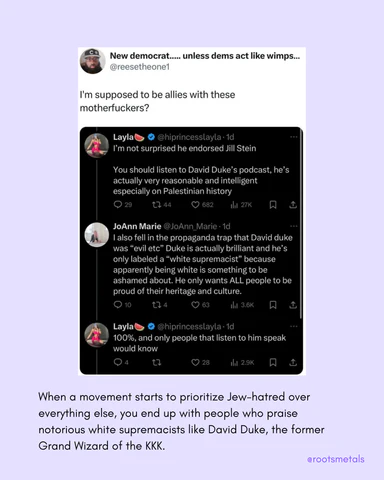
rootsmetals
you shouldn’t wait until antisemitism affects you personally to care, but antisemitism *will* affect you personally eventually, whether you’re Jewish or not.
For a full bibliography of my sources, please head over to my Instagram and Patreon.
280 notes
·
View notes
Text
Where does this curious Hindutva-Zionist solidarity spring from? One origin is from the earliest Hindu nationalists who modelled their Hindu state on Zionism. Hindutva’s founder, Vinayak Damodar Savarkar, supported majoritarian nationalism and the rooting out of all disintegrating forces. These included Muslims who supported electoral quotas for their community and left-wing internationalists. As a result, he even condoned the Nazis’ antisemitic legislation in two speeches in 1938 because, as he saw it: “a nation is formed by a majority living therein”. Yet Savarkar was not antisemitic himself. He often spoke favourably of the tiny Jewish-Indian minority because he considered it too insignificant to threaten Hindu cohesion. In fact, Savarkar praised Zionism as the perfection of ethno-nationalist thinking. The way Zionism seamlessly blended ethnic attachment to a motherland and religious attachment to a holy land was precisely what Savarkar wanted for the Hindus. This double attachment was far more powerful to his mind than the European model of “blood and soil” nationalism without sacred space. Today, Hindu nationalists perpetuate this legacy and still look to Zionism as a uniquely attractive political ideology. To Hindu nationalists, some Zionists were engaged in a project to reclaim their holy land from a Muslim population whose religious roots in the region were not as ancient as their own.
[...]
In 2018, Israel passed a law that rebranded the country as “the nation-state of the Jewish people” and delegitimised its non-Jewish citizens. Similarly, India’s controversial Citizenship Amendment Act in 2019 eased paths to citizenship for immigrants from several religious groups, but not Muslims. Coupled with rhetoric associating millions of Indian Muslims with illegal immigration, human rights groups argue that this law could be used to strip many Muslims of their Indian citizenship. Hindu nationalists have also stoked a culture war to consolidate “Hindu civilisation” and sweep away symbols of Islam. This is very much in keeping with the wish of Israel’s far right to rebuild Solomon’s Temple on the site of the holy Temple Mount in Jerusalem, where al-Aqsa mosque compound currently sits. In 1969, a Zionist extremist burned the south wing of al-Aqsa. And in 1980, the fundamentalist group Jewish Underground plotted to blow up the Dome of the Rock, an Islamic shrine at the centre of the compound. A similar project of demolishing mosques and building temples in their place was suggested by Savarkar and Golwalkar. Hindu nationalist organisations focused their attention on Babri Masjid mosque in Ayodha, since this was the mythical birthplace of the Hindu god, Ram.
326 notes
·
View notes
Text
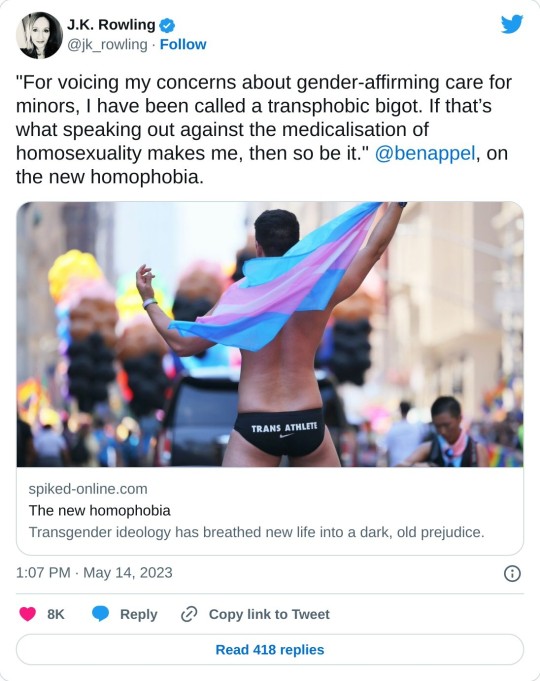
Homophobia in drag
When I was a young boy, I loved spending the night at my grandmother’s house. There, I could stay up as late as I wanted, and in the morning, there would always be Cinnamon Toast Crunch for breakfast. But the best part was raiding the closet in her basement, which was full of the gowns she had worn in the 1960s and 1970s – frilly pink and purple confections made of lace, chiffon and silk. I would put them on and watch The Golden Girls, sophisticatedly sipping Coke from a wine glass.
When I was nine, my dad bought a video camera, a giant monstrosity that my siblings and I struggled to balance on our shoulders while we filmed home videos. Alone, I’d prop the camera on the coffee table and record myself modelling various outfits, explaining to the camera why this plaid shirt went with these cargo shorts, or why this teal Starter jacket complemented these acid-washed jeans so perfectly. I captured on camera the dance I had painstakingly choreographed to Marky Mark and the Funky Bunch’s ‘Good Vibrations’.
As a kid, I followed my two older sisters around like a shadow, mimicking their mannerisms – the way they tucked loose strands of hair behind their ears when they were concentrating on their maths homework; the way they jutted their hips whenever they were talking to cute boys. Like them, I was a naturally athletic kid. My favourite sport was lacrosse, but I much preferred to play with the girls instead of the boys. The boys were quick to push and shove, and they loved to whack each other with their aluminium sticks. Girls relied more on their speed, their reflexes and the skills they’d honed to keep the ball securely cradled in the shallow mesh of their wooden sticks.
I grew up in a fundamentalist Christian community – most people would call it a cult. From kindergarten to the sixth grade, I attended the community’s tiny school. Because enrollment was so low, there was no in-crowd, no separate cliques of jocks and geeks. In retrospect, I’m sure my classmates and especially my teachers noticed my gender-nonconformity – all of my home videos prove that it was glaring – but it went largely ignored. All that mattered was that we were good Christians, that we loved Jesus and evangelised God’s Word to as many people as possible. When I learned about homosexuals in Bible class, or about AIDS (which we were told God had created to punish homosexuals for their sins), I didn’t think for a moment that I was one of them. Sure, my first real crush, when I was 11, had been on a boy – Elijah Wood, an actor about my age whose performance in the 1994 B-movie, North, had captured my heart. But at the time, before sexual maturity, I mistook the longing I felt for Elijah with the more sanitised desire to simply keep his company and be his best friend. I indiscriminately absorbed all of the lessons I learned about homosexuals, as if they were and would always be irrelevant to my life.
The summer after my sixth-grade year, my family left the community and we moved to a neighbouring town. I began seventh grade in a large public school, where there was definitely an in-crowd. My new classmates wasted little time informing me how unacceptable it was for a boy like me to behave the way I did – the way I enunciated my s-words, the way I brushed my auburn hair, which I had highlighted the previous summer with Sun-In. They called me a faggot, delivered me notes that said everyone knew my ‘dirty little secret’. They asked me frequently, ‘Are you a boy or a girl?’. Well, of course I was a boy, I would respond, trembling.
Meanwhile, I was beginning to sexually mature; I was soon developing crushes that inspired more than just a desire to keep a boy’s company. With horror, I realised that I might actually be what the kids were calling me – which, I knew in my bones, guaranteed me a tragically short life and a one-way ticket to hell. That, after all, was what the old form of homophobia entailed. Self-loathing.
To survive the onslaught, I defeminised myself. I lowered my voice, started wearing baggy jeans and sweatshirts, cut the highlights out of my hair, and replaced my Mariah Carey CDs with Nirvana. Soon, the fear and the anxiety became too much to bear, and the only refuge I found was in alcohol and drugs.
In high school, with each passing year, my drug use got worse. After graduation, I lasted one semester in college before dropping out. Two months later, at the age of 19, I had my first of several stays in a local psychiatric ward. I was delusional, addicted to drugs and suicidal.
It was during my second stay in the psychiatric ward that I was introduced to a 12-step programme, which was how I would eventually get sober in my early twenties. It was slow-going in the beginning of my sobriety to accept my homosexuality. I began to reconnect with the young boy I had once been, the boy whose interests expanded beyond what was typical for males. I experimented with bronzer and mascara, and got French manicures and pedicures.
Engaging in these behaviours felt liberating for a while, but eventually the novelty wore off. In fact, they started to feel performative. I realised I didn’t need those things to be my authentic self. My ideas, my voice, the way I treat other people – these are the things that make me the person I truly am.
In 2011, when I was 28, I fell in love with a man. The following year, I joined the fight for marriage equality. After we won that campaign, I knew I wanted to become a gay activist. I wanted to help create a world in which feminine boys and butch girls could exist peacefully in society. A world in which gender-nonconforming people were accepted as natural variations of their own sex. Minorities, sure, but real and valid nonetheless.
The trans question
In 2017, at the age of 33, I enrolled at Columbia University, New York to complete my undergraduate degree. There, I was shocked to discover how gay activism had evolved since marriage equality became the law of the land. The focus was now entirely on personal pronouns and on being ‘queer’. My classmates labelled me ‘cis’, short for cisgender. I didn’t even know what it meant. All I knew was that they called me ‘cis’ in the same cadence that the seventh graders had called me ‘fag’.
Soon, I learned about nonbinary identities, and that some people – many people – were literally arguing that sex, not gender, was a social construct. I met people who evangelised a denomination of transgenderism that I had never heard of, one that included people who had never been gender dysphoric and who had no desire to medically transition. I met straight people whose ‘trans / nonbinary’ identities seemed to be defined by their haircuts, outfits and inchoate politics. I met straight women with Grindr accounts, and listened to them complain about the ‘transphobic’ gay men who didn’t want to have sex with women.
All around me, it seemed, straight people were spontaneously identifying into my community and then policing our behaviours and customs. I began to think that this broadening of the ‘trans’ and ‘queer’ umbrella was giving a hell of a lot of people a free pass to express their homophobia.
At Columbia, I took classes on LGBT history, but much of that history was delivered through the lens of queer theory. Queer theorists appropriate French philosopher Michel Foucault’s ideas about the power of language in constructing reality. They argue that homosexuality didn’t exist prior to the late 19th century, when the word ‘homosexual’ first appeared in medical discourse. Queer theorists proselytise a liberation that supposedly results from challenging the concepts of empirical reality and ‘normativity’. But their converts instead often end up adrift in a sea of nihilism. Queer theory, which has become the predominant method of discussing and analysing gender and sexuality in universities, seemed to me to be more ideological than truthful.
In my classes on gender and sexuality in the Muslim world, however, I discovered something else, too. I learned about current medical practices in Iran, where gay sex is illegal and punishable by death, and where medical transition is subsidised by the state to ‘cure’ gays and lesbians who, the theocratic elite insists, are ‘normal’ people ‘trapped in the wrong bodies’. I privately drew parallels between the anti-gay laws and practices of Iran and what I saw developing in the West, but I convinced myself I was just being paranoid.
Then, I learned about what was happening to gender-nonconforming kids – that they were being prescribed off-label drugs to halt their natural development, so that they’d have time to decide if they were really transgender. If so, they would then be more successful at passing as the opposite sex in adulthood. Even worse, I learned that these practices were being touted by LGBT-rights organisations as ‘life-saving medical care’.
It felt like I was living in an episode of The Twilight Zone. How long were these kids supposed to remain on the blockers? And what happens in a few years, if they decide they’re not ‘truly trans’ after all, and all of their peers have surpassed them? Are they seriously supposed to commence puberty at 16 or 17 years of age? These questions rattled my brain for months, until I learned the actual statistics: nearly all children who are prescribed puberty blockers go on to receive cross-sex hormones. Blockers don’t give a kid time to think. They solidify him in a trans identity and sentence him to a lifetime of very expensive, experimental medicalisation.
I wondered how different these so-called trans kids were from the little boy I had been. Obviously, I grew up to be a gay man and not a transwoman. But how could gender clinicians tell the difference between a young boy expressing his homosexuality through gender nonconformity, and someone ‘born in the wrong body’? I decided to dig deeper into the real history of medical transition.
Medicalising homosexuality
What I learned validated all of my worst fears. I learned that for decades after their invention, synthetic ‘sex hormones’ were used by doctors and scientists who sought to ‘cure’ homosexuality, and by law enforcement to chemically castrate men convicted of committing homosexual acts.
I learned about actress and singer Christine Jorgensen, one of the first people in the US to become widely known for having ‘sex-reassignment’ surgery in the early 1950s. Jorgensen may now be celebrated by the modern ‘LGBTQIA+’ community as a trans icon, but he seemed more concerned with escaping his homosexuality, which he said was ‘deeply alien to my religious attitudes’. As Jorgensen put it, ‘I identified myself as female and consequently my interests in men were normal’.
I learned that of the first adolescents to be treated for gender dysphoria (or what was then called ‘gender identity disorder’) with puberty blockers and cross-sex hormones in the 1990s and early 2000s, the vast majority were homosexual. And I learned that these studies inform current ‘gender-affirming care’ practices.
Soon, I met detransitioned gay men who had sought an escape from internalised and external homophobia in a transgender identity. They continue to suffer severe post-surgical complications, years after their vaginoplasties.
I began to fear we had reached a point of no return a couple of years ago, during a conversation I had with a supposedly ‘progressive’ friend. I told her that, if I had been a young boy now, I likely would have been prescribed puberty blockers and gone on to medically transition. ‘And you don’t think you would’ve been happy as a transwoman?’, she asked me. Her question left me speechless. I couldn’t find the words to state the obvious: that I am a gay man, not a transwoman; that statistics tell me my medical transition may not have been successful; and that I would suffer severe medical complications. In any case, if I had transitioned, I wouldn’t be living an authentic life. After all, isn’t that what this is supposed to be about? Living authentically?
Sylvester, an androgynous disco icon of the 1970s and 1980s, was once asked what gay liberation meant to him. He answered, ‘I could be the queen that I really was without having a sex change or being on hormones’. Perhaps I belong in an earlier era, when newly liberated gays and lesbians rebelled against the medical and psychiatric experiments they had long been subjected to. Perhaps my early aspiration of expanding what it means to be a boy or a girl was nothing but a pipe dream. In Europe, there is hope that these medical experiments will cease, and that gay and lesbian adolescents will be spared from a lifetime of medicalisation. But in the US, nearly eight years after same-sex marriage became the law of the land, it is full-steam ahead with these homophobic practices.
For voicing my concerns about gender-affirming care for minors, I have been called a transphobic bigot. If that’s what speaking out against the medicalisation of homosexuality makes me, then so be it.
1K notes
·
View notes
Note
Pretending like any communist country had no faults is just as bad as Europeans acting like their country has no faults, you can only battle corruption by calling it out and I have a feeling that if Israel was somehow communist you'd be defending them and somehow excusing what they're doing to the Palestinians much like how you're excusing what China is doing to the Uyghurs
Thank you for providing an example of exactly what I was talking about. Now China isn't perfect (and I never claimed it was) and if you want to criticise it's mistakes and wrongdoings there's plenty to talk about both past and present. Just off the top of my head you could talk about the reflexive anti-Sovietism leading to attacks on fellow revolutionaries (i.e. Vietnam) and support for misguided or even counter-revolutionary movements (CPK in Cambodia, UNITA in Angola) or the excessive concessions to foreign capitalists (i.e. Foxconn) in the name of economic development that allowed these firms to exploit and abuse Chinese citizens. But what you can't talk about is the "Uyghur Genocide" because it's not a fucking thing that's happening. It's completely fucking made up by reactionary dipshits as a part of the USA's strategic "pivot to Asia". Like it's not as though China has perfectly handled the issue of Islamic Fundamentalist violence in the territory (i.e. forbidding certain items of clothing is clearly an unnecessarily oppressive and likely counter-productive tactic) but their focus on countering terrorism by changing the material conditions that led to radicalisation in the first place put the Chinese above any part of "The West" in this regard. And whatever you want to say about China's policy towards Xinjiang it's sure as fuck not "genocide"
Anyway plenty of people do in fact claim that Israel is some sort of communist and on this blog I have always expressed the view that this position is complete bullshit; "Labour Zionism" is a fucking joke of an ideology that only functions as a tool for class collaborations with the Settler Bourgeoisie granting their Proletariat concessions in exchange for support in the super-exploitation of the Indigenous working class. Like you can't just say "Oh I'd bet you'd fall for this" when I very clearly haven't
My point isn't that "any communist country has no faults". My point is that Left Anti-Communists don't want a good faith discussion of these faults as is proven by their obsession with faults that aren't even fucking real. Just like you are doing right now in fact. If you want to criticise people for being too soft on communist regimes then please do so over things that are actually happening and not completely fabricated by the most rabidly reactionary US propagandists. Thanks 👍
179 notes
·
View notes
Text
“Moral grandiosity seems to have infected the nomenklatura class of giant corporations. It is not enough for them to ensure that the corporations make a decent profit within the framework of the law; they must claim to also be morally improving, if not actually saving, the world.
So it was with Alison Rose, the first female chief executive of the National Westminster Bank, a large British bank 39 percent owned by the British government. When first appointed to the position, she said that she would put combatting climate change at the centre of the bank’s policies and activities. Whether shareholders were delighted to hear this is unknown.
But the bank, under her direction, went further. Its subsidiary, Coutts, founded in 1692 and long banker to the rich, compiled a Stasi-like dossier on one of its customers, Nigel Farage, before “exiting” him from the bank, to use the elegant term employed by Ms. Rose. (Defenestration will come later, perhaps.)
Farage is, of course, a prominent right-wing political figure in Britain, as much detested as he is admired. There was no allegation in the dossier that he had done anything illegal; indeed, in person, he had always acted correctly and courteously toward staff. What was alleged was that his “values” did not accord with those of the bank, which were self-proclaimed as “inclusive” (though not of people with less than $3.5 million to deposit or borrow). Farage was depicted as a xenophobe and racist, mainly because he was in favour of Brexit and against unlimited immigration. That anyone could support Brexit for any reason other than xenophobia, or oppose unlimited immigration other than because he was a racist, was inconceivable to the diverse, inclusive thinkers of Coutts Bank.
Ms. Rose saw fit to leak details to the BBC about Farage’s banking affairs, claiming to believe that they were public knowledge already. She did not mention the 40-page dossier that her staff had put together, about Farage’s publicly-stated views. The Stasi would have been proud of the bank’s work, which comprehensively proved him to have anti-woke views.
Whatever else might be said about Mr. Farage, no one would describe him as a pushover, the kind of person who would take mistreatment lying down. Even the Guardian newspaper, which cannot be suspected of partiality for him, suggested that the bank and its chief executive had questions to answer.
It was not long before Ms. Rose had to beat a retreat. She issued a statement in which she said:
I have apologised to Mr. Farage for the deeply inappropriate language contained in [the dossier].
The board of the bank said that “after careful reflection [it] has concluded that it retains full confidence in Ms. Rose as CEO of the bank.”
The following day, Rose resigned, admitting to “a serious error of judgment.”
𝐓𝐡𝐞 𝐯𝐚𝐥𝐮𝐞 𝐨𝐟 𝐭𝐡𝐞 𝐛𝐚𝐧𝐤 𝐟𝐞𝐥𝐥 𝐛𝐲 𝐦𝐨𝐫𝐞 𝐭𝐡𝐚𝐧 $𝟏 𝐛𝐢𝐥𝐥𝐢𝐨𝐧.
The weasel words of Ms. Rose and the bank board are worth examination. They deflected, and I suspect were intended to deflect, the main criticism directed at Ms. Rose and the bank: namely, that the bank had been involved in a scandalous and sinister surveillance of Mr. Farage’s political views and attempted to use them as a reason to deny him banking services, all in the name of their own political views, which they assumed to be beyond criticism or even discussion. The humble role of keeping his money, lending him money, or perhaps giving him financial advice, was not enough for them: they saw themselves as the guardians of correct political policy.
It was not that the words used to describe Mr. Farage were “inappropriate,” or even that they were libelous. It is that the bank saw fit to investigate and describe him at all, at least in the absence of any suspicion of fraud, money laundering, and so forth. “The error of judgment” to which Ms. Rose referred was not that she spoke to the BBC about his banking affairs (it is not easy to believe that she did so without malice, incidentally), but that she compiled a dossier on Farage in the first place—and then “error of judgment” is hardly a sufficient term on what was a blatant and even wicked attempt at instituting a form of totalitarianism.
This raises the question of whether one can be wicked without intending to be so, for it is quite clear that Ms. Rose had no real understanding, even after her resignation, of the sheer dangerousness and depravity of what the bank, under her direction, had done.
As for the board’s somewhat convoluted declaration that “after careful consideration, it concluded that it retains full confidence,” etc., it suggests that it was involved in an exercise of psychoanalytical self-examination rather than of an objective state of affairs: absurd, in the light of Ms. Rose’s resignation within twenty-four hours. The board, no more than Ms. Rose herself, understood what the essence of the problem was. For them, if there had been no publicity, there would have been no problem: so when Mr. Farage called for the dismissal of the board en masse, I sympathised with his view.
There is, of course, the question of the competence of the bank’s management. Last year, the bank’s profits rose by 50 percent (I wish my income had risen by as much). I am not competent to comment on the solidity of this achievement: excellent profits one year followed by complete collapse the next seem not to be unknown in the banking world. But the rising profits under Ms. Rose for the four years of her direction seem to point to, at least on some level, of competence. How many equally competent persons there are who could replace her, I do not know.
Still, 𝐭𝐡𝐞 𝐭𝐞𝐧𝐝𝐞𝐧𝐜𝐲 𝐭𝐨 𝐦𝐨𝐫𝐚𝐥 𝐠𝐫𝐚𝐧𝐝𝐢𝐨𝐬𝐢𝐭𝐲 𝐜𝐨𝐦𝐛𝐢𝐧𝐞𝐝 𝐰𝐢𝐭𝐡 𝐚 𝐥𝐚𝐜𝐤 𝐨𝐟 𝐞𝐥𝐞𝐦𝐞𝐧𝐭𝐚𝐫𝐲 𝐬𝐜𝐫𝐮𝐩𝐥𝐞𝐬, as illustrated in this episode, is worrying. Would one trust such people if the political wind changed direction? Their views would change, but the iron moral certainty and self-belief would remain the same, like the grin of the Cheshire Cat. How many meetings have I sat through in which some apparatchik has claimed to be passionately committed to a policy, only to be just as passionately committed to the precise opposite when his own masters demand a change of direction?! The Coutts story is one of how totalitarianism can flourish.”
—
Theodore Dalrymple
#the new totalitarianism#political righteousness#totalitarianism#secular religion#moral exhibitionism#apparatchiks#professional managerial class mind virus#ideological fundamentalists#insane in the membrane#Theodore Dalrymple#western decline#Neil Farage#persona non grata#the new inquisitions#barbaric#national Westminster bank#the self anointed
14 notes
·
View notes
Text
good omens is an allegory for queer deconstruction from an abusive fundamentalist religious environment.
i've talked about it on here ad nauseum, probably, but i haven't fleshed my thoughts out on it fully. this has been my interpretation since season 1, and season 2 just solidified it for me. so here goes.
it's about the choice that all queer people in an environment like this have to make, and both choices suck and end with loss.
choice 1: stay with your church community, your friends, your family, the world you've always known, but never be true to yourself. because they will never fully accept you if you are true to yourself.
choice 2: embrace your queerness, live your authentic life, and leave it all behind. you're torn from everything you've ever known, everyone you've ever loved. but it's what you have to do to be happy. aziraphale is stuck between choices. crowley never had a choice. his was made for him.
heaven are the church elders. the protectors. the ones who say they have your and god's best interest in mind, always. they don't. to them, hell are the blasphemers, who are both unworthy of redemption yet can only be saved by it. they are the arbiters of what is good and right and bad and wrong.
aziraphale's story is one of both learned faith and earned faith. learned, in that he's been indoctrinated his whole life. been to church at least twice a week since birth. earned, in that he's seen the good that the church can do–they feed the hungry, shelter the unhoused. how could people who do such good be capable of cruelty? and surely, when they are cruel, there must be some greater good to come out of it?
crowley was faithful once, too. he loved god. loved church. but he knew he was queer from a young age, and asked questions about it. not because he wanted to make trouble, but because he wanted to understand. to understand why something he knew about himself to be so innately true could be wrong. but the church didn't see it as that–they saw the embodiment of sin, questioning them. their authority, their virtuosity, the fibre of what holds their organization together, and he was cast out. was kicked out of his home, alienated from his family, his friends, his community. he fell. and he now sees the church for what it truly is.
as for aziraphale, he's accepted the fact that he's queer, but had faith that his elders had his best interest at heart when they spewed homophobic ideology. he never believed the ideology, not really, but he had to believe (made himself believe) that the people who spread it meant well. that they meant it out of kindness, out of protecting queer people from damnation. he wanted to believe that not everyone in the church was like this, that not everyone in the church thought all queer people are inherently people of sin. that is, until a mentor, someone he trusts, perpetuates it too. he's had moments in his past that chipped away at his faith: he'd stayed friends, or whatever you want to call it, with crowley, and crowley had tempted him into trying new things that the church wouldn't approve of. things that aziraphale loved. but this moment with his mentor is when his faith is truly shaken. it's the beginning of his active deconstruction.
and so he leaves. he leaves and finds crowley and they build a semblance of a life together with what they have. they're happy. he's learning that he doesn't need to go to church to be holy. that he doesn't need to be holy to be happy. that he's allowed to indulge in the things he loves without guilt and shame.
that is, until that mentor shows up at his doorstep, offering him everything he's ever wanted. insinuates that he knows him and crowley aren't just friends, and assures him that they can come back to church together. that they're going to change things in the church, and that aziraphale can help. that they need aziraphale to help. (they don't. they want a pious gayboy to help repair their image. it's performative activism at its finest). aziraphale is being offered his family, his community, everything back, and crowley can come too. preying on his wants and desires, manipulating him back into their control. so of course he says yes. they'll get to be together with everything they've ever known and aziraphale doesn't have to make a choice between losses anymore. (deconstruction isn't linear, and abuse is cyclical.)
but crowley makes it for him. crowley tells him no. he doesn't want that life and doesn't want to go back to those people who hate him so much. who hate them so much. crowley knows what the church is about and sees it for what it is. they're not about god, or moral good or doing what's right. all they want is control. it's about the optics of the organization. it's about influencing what serves them and their agenda, and crowley knows that aziraphale is just a pawn to them. ("Why would we go back to them, when they think that who we are is wrong? Is vile? They think us the embodiment of sin and you want to go help them with their PR campaign?")
but aziraphale doesn't know that, can't know it, and crowley can't make him see it. (aziraphale knows that they cast crowley out, that he was kicked out of his home. crowley never shared with him about what happened after. the nights on the street, the things he'd endured to survive.)
and so crowley kisses him. he kisses him to tell him not that he loves him, because of course he does. he kisses him to tell him "This is what you leave behind. We would never be able to do this there, to be this there, even if they say we could. Our lives are here, our safety is here. this is what you're giving up."
crowley has been through it and experienced their cruelty firsthand. aziraphale won't be able to see it until he experiences it, too. he won't be able to realize he's being played if he doesn't even know that there's a game happening in the first place.
i can't recommend watching the show through this lens enough. it makes aziraphale's story that much more heartbreaking, because there's this intense duality of indoctrination vs. deconstruction that lives within him constantly. (imo it's also the main difference between book aziraphale and tv aziraphale: book aziraphale is significantly further along in his deconstruction journey. it's why he's a bit more of a bastard. tv aziraphale is set back a bit further, which sets up his deconstruction arc beautifully across three seasons.)
it's why aziraphale has the ability to peel back layers of himself and his train of thought depending on the situation at hand–he literally has two trains of thought happening at once. the indoctrinated one, and the deconstructed one.
and when crowley kisses him, it's the first time in his existence that both trains of thought have been that present simultaneously. it's both trains colliding full speed with each other. it's why we see both livid, hesitant frustration and fierce passion and longing at once. it forced him to confront something that lived so deeply within himself that he wanted to bring to light on his own terms, but crowley was desperate. the kiss wasn't i love you, please stay. it was look at what you're leaving behind. we could've been us, we could've been this.
and i think that whatever happens in season 3, whatever heaven does that makes them finally irredeemable in aziraphale's eyes, it'll be a beautiful ending to his deconstruction arc. not that deconstruction ever ends, not truly, but for the first time in his existence, he'll be able to see heaven, hell, and the system as a whole clearly for what they are: a bunch of self-righteous dicks.
[if you're curious about religious deconstruction and what it means, this video by therapist and social worker mickey atkins talking about deconstruction in reference to shiny happy people, a documentary about the duggar family, is a good place to start. cw for pretty much all types of abuse imaginable, fyi.]
#here is aforementioned meta post lmao#i feel like i can breathe lighter getting this out of my system#cw religious trauma#good omens#good omens meta#thoughts#neil gaiman
459 notes
·
View notes
Text
Anyway. I've said this before but while I am generally critical of communism and the USSR, anticommunism is a far more bleak and disturbing ideology. There is an oft-repeated lie that the Cold War was a conflict between democratic capitalism and authoritarian communism, but you really don't have to look that hard to see how that narrative falls apart - the people the US supported as bulwarks against communism were consistently antidemocratic.
The cognitive dissonance induced by anticommunism was staggering - you have all these US government officials talking about the loathed enemy, unable to really articulate what they were fighting and why, and why they thought the people they were supporting were better, besides their shared opposition to communism.
A particularly stark example of this comes up in this season of Blowback when the CIA director was flirting with a plan to try and get Soviet soldiers to defect. To shoot down the plan, other CIA operatives showed him evidence of Mujaheddin sexual violence against Soviet prisoners, which elicited a response along the lines of "I see your point, there's no way any of the Soviets would ever ally with those subhuman monsters." But those were the same people the CIA were funding, training, and arming!
Even some concept of pro-US campism (support people who are pro-US!) or shared interest in capitalist profits (support people who make the US money!) doesn't hold up - the Islamic fundamentalists were completely uninterested in what the US was selling, except that it furthered their immediate aims!
184 notes
·
View notes
Text
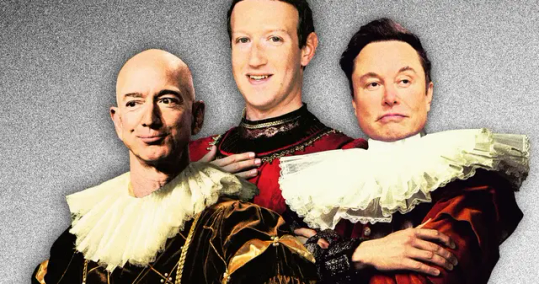
Hello, Thank You For Being Here (Pt. 4)
nickname: DJ
age: 30+
pronouns: any
status: unavailable/partnered
side blogs: @toocoolforghoul / @in-the-woods
ancom/socialist/communist/whatever label scares your family
anti-imperalism/anti-colonialism
neurodivergent and it's obvious
pitbull dad
hip hop/hardcore/punk aficionado
brbabcs/iasip/the wire super fan
note: although not explicitly NSFW, some reblogs or other contents of this blog may contain NSFW material such as suggestive text posts or memes. i do not interact with minors, zero exceptions. some other things you may expect to see on this blog include:
socialist agitprop
current events
politics & world news
history
art - photography, paintings, etc.
hip-hop & punk miscellanea
climate change grief
mental health stuff
oc writing (lol)
personal diatribes
animals
absurd/surreal memes
silly text posts
photos of my dog
here are some additional disclaimers that i ask you be aware of before interacting with my blog:
i find DNIs pointless, but if you are a: TERF or transphobe, zionist, religious fundamentalist, or subscribe to otherwise fascist ideology, please fuck off blindfolded directly into oncoming traffic. you are not welcome here.
PLEASE DO NOT REBLOG MY POSTS WITH PASSIVE-AGGRESSIVE COMMENTS!
if i reblog something from one of the aforementioned groups of individuals and you have a problem with that, please address me like you would a stranger at Wal-Mart. i do not respond well to hostile behavior (especially online) and will likely be very mean to you and then block you. again, please don't do it. i'm trying to be a less angry person.
my sense of humor is extremely deadpan/sarcastic and sometimes does not translate well to text. if i am being particularly sarcastic, i will try to point it out. please be somewhat charitable. if something seems out of character, ask me for clarification and i'll provide it.
i do not participate in back-and-forth arguments or ideological pissing contests. unironically arguing with complete strangers on the internet has been pointless and stupid since 1993. you will get a block. i will not engage. do not waste your time.
this blog supports all marginalized and/or oppressed people globally, including all LGBTQIIA+ individuals, Black people, immigrants, indigenous people, and many others. i do not tolerate any form of racism, anti-semitism, islamophobia or any other hatred on this blog. you will get a block.
you are welcome to reblog anything i post here. if i don't want it reblogged, i will turn reblogs off. pretty simple resolution on my end. otherwise, enjoy your stay. i love you & thanks for stopping by.
52 notes
·
View notes